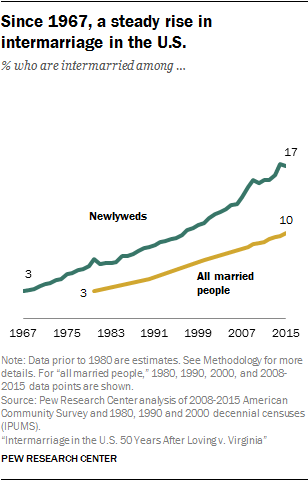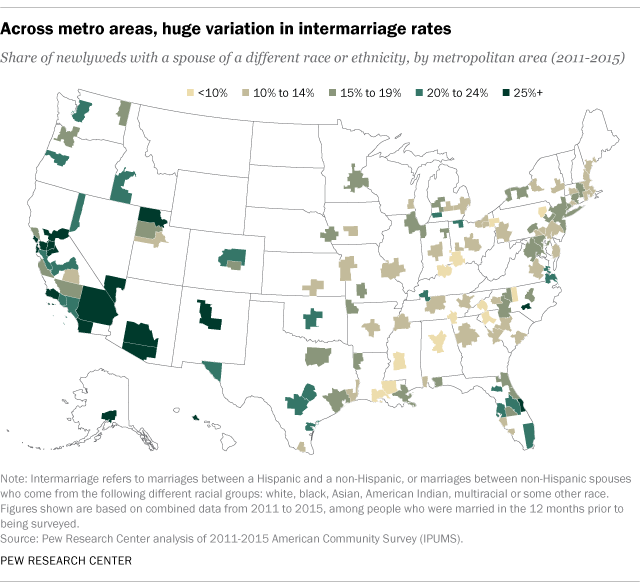‘We Are Not Unusual Anymore’: 50 Years of Mixed-Race Marriage in U.S.Posted in Articles, Census/Demographics, History, Law, Media Archive, United States on 2017-06-12 20:57Z by Steven |
‘We Are Not Unusual Anymore’: 50 Years of Mixed-Race Marriage in U.S.
The New York Times
2017-06-11
Jennifer Medina, National Correspondent
Los Angeles, California
 Rosina and Leon Watson last week in St. Elizabeth Catholic Church in Oakland, Calif. They were married in the church in 1950, 17 years before Loving v. Virginia, the United States Supreme Court case allowing interracial marriage. Credit Jim Wilson/The New York Times |
OAKLAND, Calif. — For their first date, in 1949, Leon Watson and Rosina Rodriquez headed to the movie theater. But each entered separately. First went Ms. Rodriquez, a fair-skinned woman who traces her roots to Mexico. Mr. Watson, who is black, waited several minutes before going in and sitting next to her.
“We always did it,” Mr. Watson said one recent afternoon. “They looked at you like you were in a zoo. We just held our heads high and kept going. If we knew there would be a problem, we stayed away from it.”
When they married in Oakland in 1950, mixed-race marriage had just become legal in California, the result of a lawsuit that reached the State Supreme Court. They are among the oldest living interracial couples legally married in the United States. It would be nearly two decades before all couples like them across the country were allowed to marry.
On Monday, they will mark the 50th anniversary of Loving v. Virginia, the United States Supreme Court case that overturned antimiscegenation laws nationwide. Mildred and Richard Loving, a black woman and a white man, had been sentenced to a year in a Virginia prison for marrying each other. The case would serve as a basis for the Supreme Court decision allowing same-sex marriage…
Read the entire article here.





